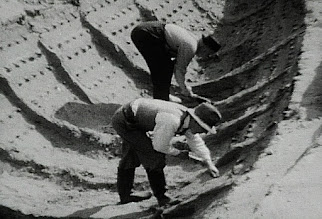A Tudor Christmas - Misrule (28th December)
28th December - Misrule
One of the most significant days for the Tudors, the 28th, was also known as the Feast of Holy Innocence or Childmas. It was to commemotate what King Harold had done to all those children. It was a day for adults to fast and on the odd occation once children woke up they were whipped as they lay in bed. For the rest of the day children were allowed greater licence and were even allowed to play in the Church. This was essentially a feast for children. It was seen as bad luck to work on Childermas and whichever day it fell on, that day would be back luck for the rest of the year. This was a day for mothers to remember the children that they had lost in infantcy.
During the Christmas festivites, there was a time when the roles of rank were reversed, this was known as Misrule. Most often they were appointed by a member of the court who came from a humble background and worshiped the monarch. This meant they were then in charge of the celebrations for two weeks and would be the only person who could control the chaos that would insue. All those that took part were all somewhat disguised. They had to make sure that there was a supply of ale, music and fun. It's known that even Henry VIII in his first Christmas as King bowed to the Lord and followed what was said. Their party would include heralds, magicians and fools.
This also passed over to the Church, Abbots of Misrule held sways at abbeys and priories, just like the Lord of Misrule did in households. They were appointed on St Nicholas's day on 6th December and held office till Holy Innocents' Day. It was common to select someone from the Cathederal Choir, it was often the longest serving who got picked. They had the job and were treated like proper bishops and did all services except Mass. Henry VIII even took part and appoined a boy from his choir.
Another type of roll reversal took place at schools, boys would get provisions and then barricade the school doors. School masters would then break in and carry out punishments, some would gain entry on the condition of the boys. This carried on in England, Scotland and Northern Ireland till the 19th century.
There was also another character known as 'Captain Christmas' or 'Prince Christmas', their role was to make sure that everyone made merry during the Yuletime festivities. The tradition of one person overseeing Christmas was well known and had been for many years. It could be argued that the Anglo-Saxons and Old Norse peoples helped pave way for what is known as Father Christmas, with his likeness possibly being inspired by the might Allfather Odin. He was a favourite character during mumming, was often dressed in green wearing a mask and wig, while shouting and brandishing a club.









Comments
Post a Comment